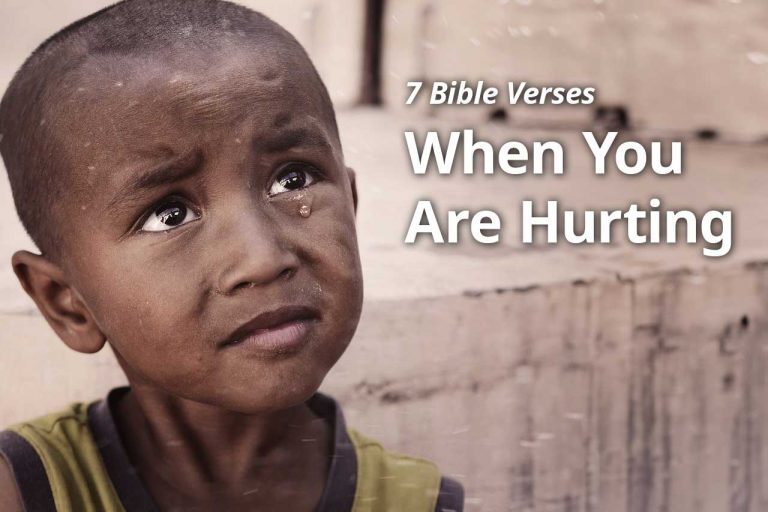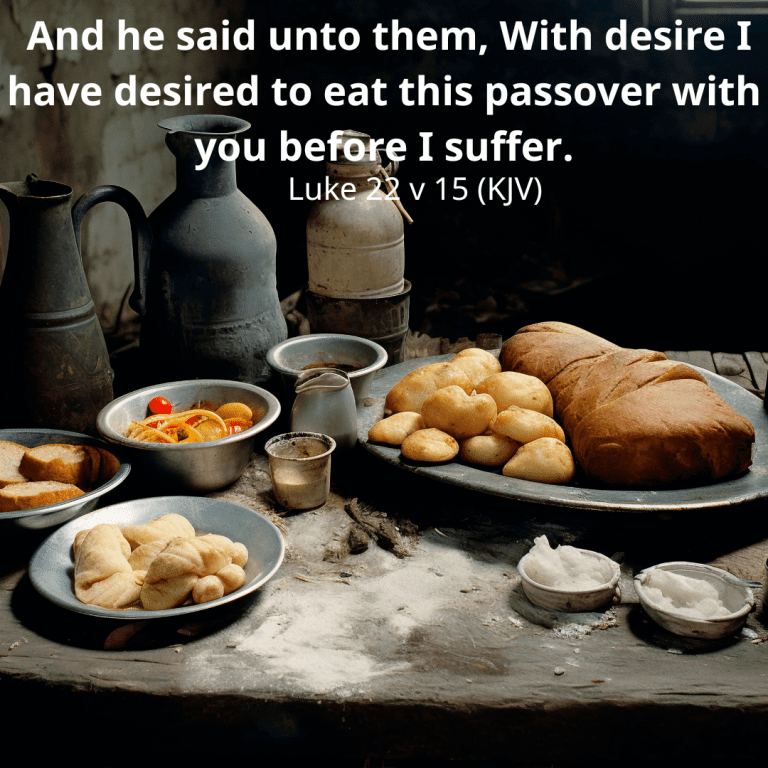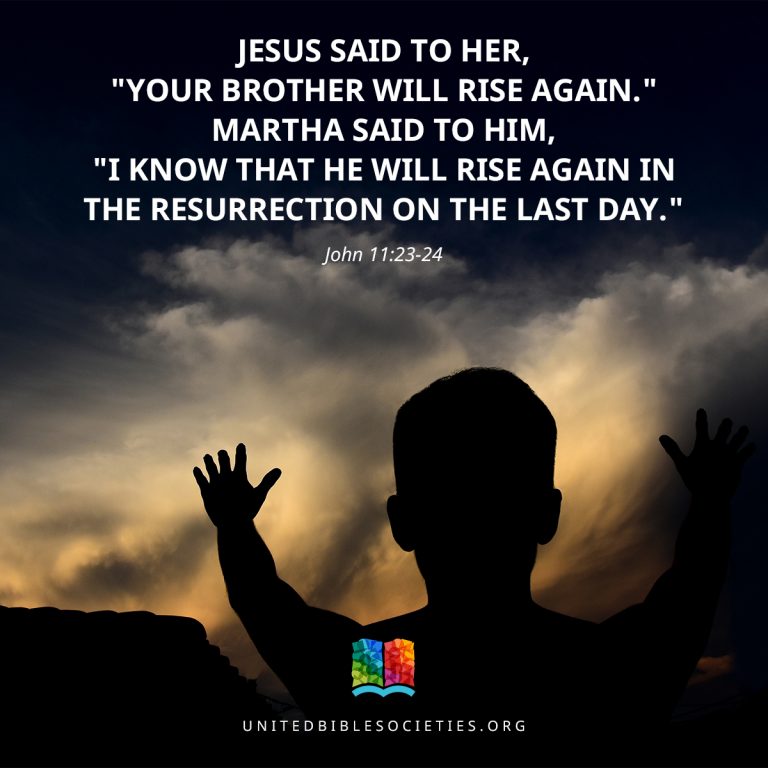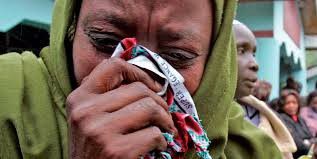The Death of Lazarus
1-2 A man by the name of Lazarus was sick in the village of Bethany. He had two sisters, Mary and Martha. This was the same Mary who later poured perfume on the Lord's head and wiped his feet with her hair. 3 The sisters sent a message to the Lord and told him that his good friend Lazarus was sick.
4 When Jesus heard this, he said, “His sickness won't end in death. It will bring glory to God and his Son.”
5 Jesus loved Martha and her sister and brother. 6 But he stayed where he was for two more days. 7 Then he said to his disciples, “Now we will go back to Judea.”
8 “Teacher,” they said, “the people there want to stone you to death! Why do you want to go back?”
9 Jesus answered, “Aren't there twelve hours in each day? If you walk during the day, you will have light from the sun, and you won't stumble. 10 But if you walk during the night, you will stumble, because you don't have any light.” 11 Then he told them, “Our friend Lazarus is asleep, and I am going there to wake him up.”
12 They replied, “Lord, if he is asleep, he will get better.” 13 Jesus really meant that Lazarus was dead, but they thought he was talking only about sleep.
14 Then Jesus told them plainly, “Lazarus is dead! 15 I am glad I wasn't there, because now you will have a chance to put your faith in me. Let's go to him.”
16 Thomas, whose nickname was “Twin,” said to the other disciples, “Come on. Let's go, so we can die with him.”
Jesus Brings Lazarus to Life
17 When Jesus got to Bethany, he found that Lazarus had already been in the tomb four days. 18 Bethany was less than three kilometers from Jerusalem, 19 and many people had come from the city to comfort Martha and Mary because their brother had died.
20 When Martha heard that Jesus had arrived, she went out to meet him, but Mary stayed in the house. 21 Martha said to Jesus, “Lord, if you had been here, my brother would not have died. 22 Yet even now I know that God will do anything you ask.”
23 Jesus told her, “Your brother will live again!”
24 Martha answered, “I know he will be raised to life on the last day, when all the dead are raised.”
25 Jesus then said, “I am the one who raises the dead to life! Everyone who has faith in me will live, even if they die. 26 And everyone who lives because of faith in me will never really die. Do you believe this?”
27 “Yes, Lord!” she replied. “I believe you are the Christ, the Son of God. You are the one we hoped would come into the world.”
28 After Martha said this, she went and privately said to her sister Mary, “The Teacher is here, and he wants to see you.” 29 As soon as Mary heard this, she got up and went out to Jesus. 30 He was still outside the village where Martha had gone to meet him. 31 Many people had come to comfort Mary, and when they saw her quickly leave the house, they thought she was going out to the tomb to cry. So they followed her.
32 Mary went to where Jesus was. Then as soon as she saw him, she knelt at his feet and said, “Lord, if you had been here, my brother would not have died.”
33 When Jesus saw that Mary and the people with her were crying, he was terribly upset 34 and asked, “Where have you put his body?”
They replied, “Lord, come and you will see.”

35 Jesus started crying, 36 and the people said, “See how much he loved Lazarus.”
37 Some of them said, “He gives sight to the blind. Why couldn't he have kept Lazarus from dying?”
38 Jesus was still terribly upset. So he went to the tomb, which was a cave with a stone rolled against the entrance. 39 Then he told the people to roll the stone away. But Martha said, “Lord, you know that Lazarus has been dead four days, and there will be a bad smell.”
40 Jesus replied, “Didn't I tell you that if you had faith, you would see the glory of God?”
41 After the stone had been rolled aside, Jesus looked up toward heaven and prayed, “Father, I thank you for answering my prayer. 42 I know that you always answer my prayers. But I said this, so the people here would believe you sent me.”
43 When Jesus had finished praying, he shouted, “Lazarus, come out!” 44 The man who had been dead came out. His hands and feet were wrapped with strips of burial cloth, and a cloth covered his face.
Jesus then told the people, “Untie him and let him go.”
The Plot To Kill Jesus
(Matthew 26.1-5Mark 14.1Mark 2Luke 22.1Luke 2)45 Many of the people who had come to visit Mary saw the things Jesus did, and they put their faith in him. 46 Others went to the Pharisees and told what Jesus had done. 47 Then the chief priests and the Pharisees called the council together and said, “What should we do? This man is working a lot of miracles. 48 If we don't stop him now, everyone will put their faith in him. Then the Romans will come and destroy our temple and our nation.”
49 One of the council members was Caiaphas, who was also high priest that year. He spoke up and said, “You people don't have any sense at all! 50 Don't you know it is better for one person to die for the people than for the whole nation to be destroyed?” 51 Caiaphas did not say this on his own. As high priest that year, he was prophesying that Jesus would die for the nation. 52 Yet Jesus would not die just for the Jewish nation. He would die to bring together all of God's scattered people. 53 From that day on, the council started making plans to put Jesus to death.
54 Because of this plot against him, Jesus stopped going around in public. He went to the town of Ephraim, which was near the desert, and he stayed there with his disciples.
55 It was almost time for Passover. Many of the Jewish people who lived out in the country had come to Jerusalem to get themselves ready for the festival. 56 They looked around for Jesus. Then when they were in the temple, they asked each other, “You don't think he will come here for Passover, do you?”
57 The chief priests and the Pharisees told the people to let them know if any of them saw Jesus. This is how they hoped to arrest him.
aza 11
ṯidiɽa ṯeḏi liazar kwumiiḏu
1 nuŋw umi kwete kweni liazar kweḏi beyṯanyaŋw, kayin weḏi maryam-ŋa eŋgen gi kweni marṯa. 2 maryam ŋgwu kwiri kworaḏi Kwelenyi ŋila ŋi, nuŋw firṯizi ŋwara nana owɽu yi, kweḏi eŋgen kweni liazar kwurna. 3 na ṯa lieŋgen lir law uziḏizi nani gwu Yecu, ner eca ŋwu: Kweleny, ŋgwa kwamɽa ŋa, ŋgwana ma kwume. 4 ma Yecu neŋne, nuŋw ari: kimeṯ ŋgu keḏi ŋiɽany kiti kiri mac; keḏi ŋiniṯ ŋeḏi Allah kiri, er gi nii Toru-na teḏi Allah tɔk.
5 na Yecu amɽi marṯaŋwuzi eŋgen gi kwir kwaw, na liazarŋw tɔk. 6 muŋw zi ṯa neŋne ŋeni kimeṯ kuŋun, nuŋw ta nani kinna ŋwamin ŋwuɽen ṯirṯir kezir wunanuŋw gwu. 7 na kwaḏan kwɔkwɔ nuŋw eca limeḏgen ŋwu: erele kezir weni yahuḏiiya kwokwony. 8 na limeḏgen eca ŋwu: rabbi, yahuuḏ yinaŋna ŋa eḏaci yal yi kerreny, na a fa ta ele kwokwony ṯirṯir a? 9 nezi Yecu eŋnici, nuŋw zi eca ŋwu: zaa kwiti kweṯorɔ wri-kwuɽen ki lamin lutuput manya? ma kwor kwere irere lu kaŋwun-na, etuŋw ere ṯugwudani mac, kaka izaŋw gwu fori kweḏi ṯurmun kḏu; 10 ma ṯa kwor irere lu kilikelu, eṯuŋw ṯugwudani, kaka iti nani gwu fori duŋgwun-na mac. 11 nuŋw zi andaci ŋu ta, nuŋw zi ma eca ŋwu: meḏgeri kweni liazar ŋgwana kwuminḏiri ŋwaru; nyi kwele, nyi kiɽṯa. 12 na limeḏgen eca ŋwu: Kweleny, muŋw inḏiri ŋwaru, ŋwu zey. 13 nezi ṯa Yecu andaci ŋundu ŋeḏi ŋiɽany ŋeḏi liazar. ner ta ari, ŋandizaŋwzi ŋeḏi ŋwaru ŋweṯi zi lizi inḏiri. 14 ta nezi Yecu eca ŋwu mamaŋ: liazar kwumɔ ma ay. 15 nenyi amina keni daŋgal-na, kaka iti nani nyi gwu kinanɔŋw mac, mindaŋ a gwu ma emni. na er ṯa ele nanuŋw gwu. 16 ṯaŋwu na tuma, kwecer tuŋwur, eca limeḏgen ŋwu: er li ma ele tɔk, er li ay.
17 ta na Yecu ele, nuŋw kaṯazi kwumɔnani ki ṯimamu-na ŋwamin kwaɽŋan. 18 beyṯanya kwunani urzaliimŋw kworɔ ketok, kwiti kwir zaa mac. 19 na leḏi yahuuḏ luru limele nani gwu marta-ŋa maryam gi, eḏi zi kandizalu, ronyinizar gwu eŋgen. 20 na marṯa, muŋw neŋne mer eca: Yecu ŋgwana kwinḏi, nuŋw ruḏeni tuc eḏi gi kadirḏa; maryam ta nuŋw ta nani duənu pet. 21 na matta eca Yecuŋw ŋwu: aḏri, Kweleny, eŋgi kinna nani kunuŋ, eŋgi eŋgeri ere ay mac. 22 na kire-kirem ŋgwu kinna ŋilŋiicanyji rac, nenyi ari, kwɔmne kwere nyiḏak kwunaŋniḏaŋa Allah, a ŋa ta Allah inḏeḏa ŋaŋwu. 23 na Yecu eca ŋwu: aŋgalu kwudiɽi rac. 24 na matta eca ŋwu: ŋilŋiicanyji rac, kwudiɽi ki tidiɽa-na teḏi lamin kla leḏi kwaḏanŋw. 25 na Yecu eca ŋwu: nyi kwiri tidiɽa, na ŋimiiḏa tɔk. muŋw emnizi nyuŋwu kwere muŋw alliḏa nyuŋwu tugwori nana, muŋw kinna ay, ŋwu miiḏi: 26 na kwete nyiḏak kwumiiḏi, muŋw eḏi ṯəmna eḏalliḏa nyuŋwu ṯugwori nana, ŋwere endi dip ki ŋiɽany-na mac. ŋemnaŋazi ŋu a? 27 nuŋw eca ŋwu: epa Kweleny, ŋimenyjemni eḏari, a kwiri Kwruztu, kwir Tor teḏi Allah, kwarir gi ŋwu, kweŋgila ki ṯurmun-na.
28 muŋw ṯa aru ŋwu, nuŋw ele ki ṯay, nuŋw ornuti eŋgen kweni maryam, nuŋw andaci nyetec, nuŋw eca ŋwu: muallim ŋgwana, kwornuṯiŋa. 29 muŋw zi neŋne, nuŋw diɽeni tuc, nuŋw ele nanuŋw gwu. 30 na Yecu ere upaḏi kinna duənuŋw mac, nuŋw ta nani kezir wukadirḏir gwu matta gi. 31 ṯaŋwu na yahuuḏ yinanir yi duənu, yikandizazi lu, mer eze maryamŋw kwumɔ diɽeni fitak, kwumɔ ru par, ner kwaḏiḏa, arir gwu ŋwu: kwele ki ṯimamu eḏi gwu ara. 32 ma maryam upaḏi kezir wunani gwu Yecu, muŋw eze, nuŋw ideḏa ŋwuɽele-na, nuŋw eca ŋwu: aḏri, Kweleny, eŋgi kinna nani kunuŋ eŋgi eŋgeri ere ay mac. 33 ma Yecu eze maryamŋw kwaru, na yahuuḏ yinḏir yi yaru tɔk, nuŋw pini bulur ki rɔgwɽɔ-na, nuŋw apiri ṯugwori beṯen, 34 nuŋw eca ŋwu: kwukeṯaŋa ṯaka? ner eca ŋwu: Kweleny, izaṯi, erele, iza. 35 Yecu ta kwaraḏina. 36 ta na yahuuḏ ari: aḏri. kwamɽaŋw ma na ga. 37 ner ta ari lɔkwɔ leŋen: kwor ŋgwu, kwellice lunduŋa yey-na, na aḏa kwiiḏi eḏi kileḏi kworu ŋgwu, eŋguŋw ere ay mac?
38 na Yecu pini ki rɔgwɽɔ-na kwokwony, nuŋw ele nani gwu ṯimamu tir kibaŋ, ṯaɽna kiɽbini kworɔ. 39 nezi Yecu eca ŋwu: dimer kiɽbini kitay. na matta kwir eŋgen kweḏi ŋgwa kwayyu eca ŋwu: Kweleny, kwumɔ wuwi kire-kirem kaka muŋw gwu nani ŋwamin kwaɽŋan. 40 na Yecu eca ŋwu: nyi kwiti kwandicaŋa manya, ma eḏi ṯəmna ta, a kweze ŋiniṯi ŋeḏi Allah? 41 ṯaŋwu ner dimi kiɽbini kiṯay. na Yecu baŋḏala, nuŋw aru ŋwu: Papa, nyi kwecaŋa zukran, kaka menyi gwu niŋnaci. 42 ŋilŋiiḏinyji rac, a kweṯinyi niŋnaci dɔk. nenyi ṯa aru ŋwu, kaka rillazanyi gwu lizi lu klu luru ṯa, er zi ma emni, er aru ŋwu: kwunderṯa kwuza. 43 andizaŋw ŋwu, nuŋw ofna ŋuma ŋi, nuŋw ari: liazar, ruḏe. 44 na ŋgwa kwayyu ruḏa, kwufiɽkarna nana, rii tɔk, ŋwara tɔk, kireṯ gi keḏi ŋiɽany; kwukəkina ki yeyna tɔk minḏiil gi. nezi Yecu eca ŋwu: kediḏir zi, efrici ŋwele.
ŋejmeṯ ŋeḏi leleny leḏi yiziiz eḏeɽenye Yecuŋw
45 ṯaŋwu, na yahuuḏ yuru yimer ila maryam ŋali, emnizi Yecuŋw, ner alliḏa ŋunduŋwu rugwori nana mer eze kwɔmne kwumɔŋwerri. 46 lakin ner anda lɔkwɔ kiṯay, ner ele nani gwu lifarzi, ner zi andaci ŋerrezi Yecu. 47 ŋwu ṯaŋwu, nezi leleny leḏi yiziiz, lifarzi li, razi lɔkwɔ duŋw eḏi kete majliza, ner aru ŋwu: a kwirir ṯi ari ḏa ma gwu kwor ŋgwu erri ŋilima ŋuru? 48 mer ṯa efrinji, a lizi alliḏa ŋunduŋwu rugwori nana tatap, mindaŋ er ila leḏi ruumiyaŋw ernyji agḏa ezir weri ŋeleny ŋi. 49 nuŋw zi andaci kwete kweŋen, kweni gayaafa, kwir kweleny kweḏi yiziiz kiḏleyu ŋga, nuŋw zi eca ŋwu: a lende lilŋiica ŋiɽaŋali ŋere ezir, 50 ya eḏi ŋi ari: ŋizawi deŋgeri eḏi kwor kwete ay ki lobi leḏi lizi, mindaŋ er ma ere kiraḏa lu tatap mac. 51 nuŋw zi ere andazi ŋu ŋuma ŋi ŋuŋun mac; lakin urŋw gwu kweleny kweḏi yiziiz kiḏleyu ŋga ta, nuŋw zi andazi ŋiɽya ŋi ŋengi ŋi Yecu eyzi lizi kla. 52 ner ere orɔ ŋeḏi lizi kla cukcuk mac; lakin leŋguŋw zi razi duŋw lir nyor nyeḏi Allah nyifaḏlu tɔk, mindaŋ eḏorɔ-na lutuput. 53 ŋwu ṯa, ki lamin ṯa kla, ner iciḏizi la eḏi naŋni ṯay ṯeḏi ṯi eɽenye ŋunduŋwu. 54 na ṯa Yecu ere ele lu pɔrpɔr ki yahuuḏ-na kwokwony mac; nuŋw ele kezir wete wunani kwuḏer lu, kayin weni afrayiim, ner gwu nani limeḏgen li.
55 na iid weḏi yahuuḏ adiḏi, weni ṯiṯamḏa ŋiɽany, ner diɽi kinaŋw luru, ner ṯaŋi urzaliim eḏi gwu daɽmani, iti kitar gwu iida kinna mac weni ṯiṯamḏa ŋiɽany. 56 ner naŋni Yecuŋw, ner andindazina, rillir gwu ki heykal-na, ner ari: a lari ḏa? kwɔ fa ta ila ki iid-na? 57 na leleny leḏi yiziiz alla amra lifarzi li, weni ŋwu: ma kwizi kwere elŋece ŋunduŋwu ezir eḏuŋw bɔŋwḏi, ta er ma miḏa.



